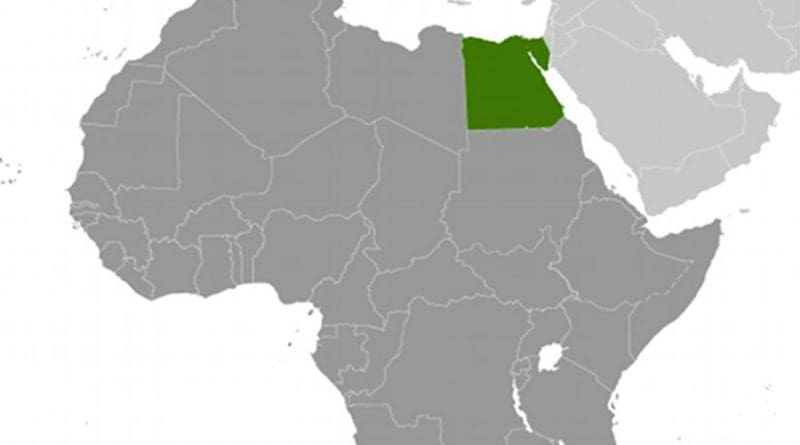Egypt: Following Elections Christians Fear Mistreatment Could Increase
By Wayne King
Islamist groups made a strong showing this week in the first stages of Egypt’s parliamentary elections, according to figures released today by elections officials, renewing concerns Christians have about their future in the country.
The Freedom and Justice Party, affiliated with the once-banned Muslim Brotherhood, won 40 percent of the vote overall. The Al Nour Party, made up of members of the extremist Salafi group, garnered 20 percent of the vote. By comparison, the relatively liberal Egypt Social Democratic Party received 15 percent of the total vote.
The candidates where campaigning for 112 seats, but the total number of seats allocated from this round of voting will not be known until after a run-off election on Monday (Dec. 5).
The election results confirmed the fears of Egyptian Christians, many of whom believe that Islamists will take control of the country in the wake of the revolution that deposed former President Hosni Mubarak. Egyptians now wait for the run-offs and final two rounds of this election, another election to seat the second half of Egypt’s bicameral chamber, and then finally the election for the next president. Further wins by Islamists, Christians said, will guarantee increased persecution against them or at a minimum, entrench their second-hand status in the country.
Echoing the remarks of most Christians in the country, Marcelle Mageh, 22, blamed conservative Muslims for the dramatic increase in attacks against Christians in Egypt after Mubarak fell from power. Sitting in the Church of St. Theresa in Cairo along with her fiancé shortly after casting their ballots on Monday (Nov. 28), Mageh said the prospect of the Muslim Brotherhood running the country along with the Salafis frightens her.
“You see all the problems that have happened before they got into power,” she said. “Imagine what will happen when they get into power.”
After the Revolution
After Mubarak stepped down from power on Feb. 11, there was a brief period of elation among Egypt’s Christians. But the joy was quickly replaced by fear after a string of attacks against Christians by self-identified members of the Salafi movement and other Muslims.
Members of the loosely affiliated Islamic group attacked Christian-owned homes and business, set church buildings on fire, and prevented congregations from opening or reopening churches, and in one incident “punished” one Christian after accusing him of renting an apartment to two prostitutes. They ordered him to convert to Islam or they would cut off his ear. He refused to convert.
For about two weeks in April, members of the Salafi movement, along with Muslims from across the country, blocked off the city of Qena when the interim government nominated a Coptic man as governor over Qena Province. He was later replaced with a Muslim.
Over the same year, the Egyptian army attacked at least two monasteries. And during an unusual show of brutality in October, the army killed at least 27 people in Cairo, at least 23 of them Christians, who were protesting the torching of a church in Aswan.
To date, no one has been tried for any of the attacks or killings. In fact, the government has instead arrested numerous Copts in connection with the incidents, claiming they incited “sectarian” violence or possessed illegal weapons.
Two-Faced Rhetoric
Part of the reason Copts are so nervous about the Islamists gaining power, the Salafis in particular, is that they accuse them of being deceptive with their rhetoric. When the Islamists are trying to gain power, they espouse policies they later deny or scoff at in private among their co-religionists, said Coptic Catholic Antowan Zekaria, 25.
“If they are in power, they show their real faces,” he said.
In the case of the Qena protests, Salafi leaders said their objection to the Coptic governor was not because he was a Christian, but because he was allegedly connected to the Mubarak government. But video shot at the protests later showed protestors screaming because, they said, having a Christian “rule” over a Muslim was against Islamic law.
Salafi religious leaders have also made numerous statements emphasizing Christian’s second-citizen status in Egypt, such as saying no Christian is fit to be president over Egypt. Several mass attacks against Christians in Upper Egypt happened this year after Salafi sheiks prompted attacks during Friday prayers.
Not all Christians in Egypt are convinced that the country under Brotherhood and Salafi leadership would lead to more persecution.
“It depends on the maturity of the leadership that comes afterward and how much they realize the importance of the image of Egypt internationally,” said the Rev. Mouneer Anis, bishop of the Episcopal and Anglican Diocese of Egypt.
Lilian Sobhy, a surgeon who worked at a medical clinic in Kasr El Dobara during the recent riots, said that more persecution is coming, but that Christians who focus on that miss the larger point. The point, she said, isn’t that persecution will come, but how to deal with it when it does.
“We believe that if the church is standing in the right place it is going to be glorious, so we don’t really care who is going to win,” she said. “Wherever it is going to happen, we believe that the Lord is sovereign.”

